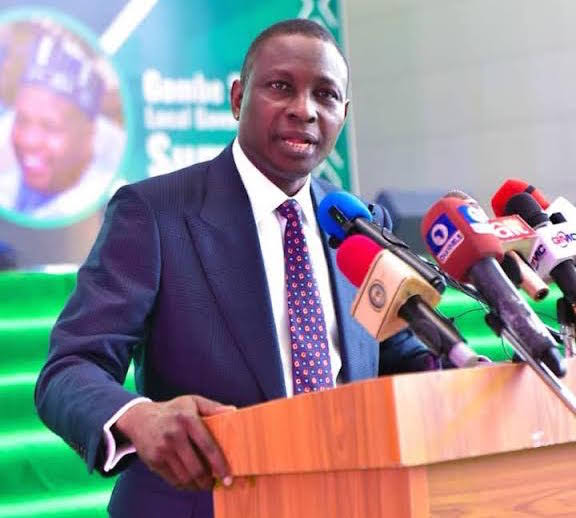The Economic and Financial Crimes Commission (EFCC) has issued a stern warning to travellers, cautioning that failure to comply with cash movement regulations could result in the forfeiture of funds and imprisonment for up to two years.
The Kano Zonal Director of the EFCC, Ibrahim Shazali, delivered the warning during a strategic sensitization session organized in collaboration with the Nigeria Customs Service (NCS) and the Independent Corrupt Practices and Other Related Offences Commission (ICPC). The session focused on the legal requirements for the movement of cash into and out of Nigeria.
Shazali emphasized that ignorance of the law will not be accepted as an excuse, and violators will be prosecuted accordingly.
“Despite existing laws regulating cash movements, travellers — whether businessmen, pilgrims, or tourists — continue to breach regulations, either out of ignorance or deliberate evasion of financial controls,” he said.
Citing Nigeria’s commitments under international anti-money laundering conventions, Shazali referenced the Central Bank of Nigeria (CBN) Act, the Money Laundering (Prevention and Prohibition) Act 2022, and the EFCC Establishment Act as key frameworks governing cash movement.
He reiterated that travellers carrying cash exceeding $10,000 (or its equivalent in other currencies) must declare it to the Nigeria Customs Service at points of entry and exit.
He warned that failure to declare such amounts constitutes a criminal offense punishable under the Money Laundering Act, with violators risking seizure of funds, forfeiture to the Federal Government, arrest, prosecution, and a minimum two-year jail term upon conviction.
Furthermore, Shazali stressed that frequent violators could face blacklisting and restrictions on both local and international travel, while businesses and individuals involved in illegal cash movement could lose banking privileges and public trust.
“This sensitization effort is aimed at educating stakeholders on their responsibilities and the serious consequences of illicit cash transactions. Compliance is not optional,” Shazali added.
The Resident Commissioner of the ICPC, Ahmed Mohammed Wada, clarified that the initiative was not intended to “witch-hunt” stakeholders but to promote awareness and strengthen Nigeria’s fight against money laundering and financial crimes.
Earlier, the Customs Area Controller for Kano/Jigawa Command, Comptroller Dalhatu Abubakar, highlighted incidents of intercepted undeclared currencies across locations including Lagos, Kano, and Daura borders.
He attributed many cases to ignorance and urged travellers to fulfill their obligations by declaring currencies at Customs checkpoints.
Stakeholders present at the session included Bureau De Change operators, businessmen, travel agencies, airline operators, and representatives from pilgrims’ boards, all of whom pledged greater cooperation with law enforcement agencies.
The EFCC, NCS, and ICPC reiterated their commitment to enforcing the laws without compromise, calling for a collective effort to protect Nigeria’s financial system




